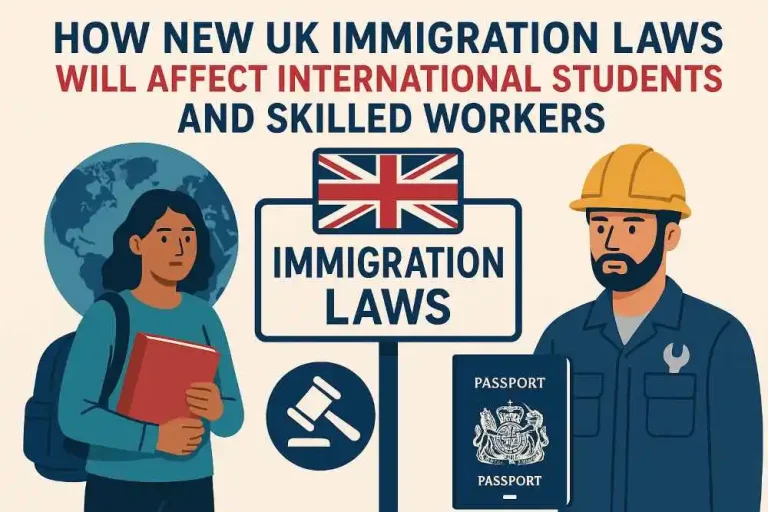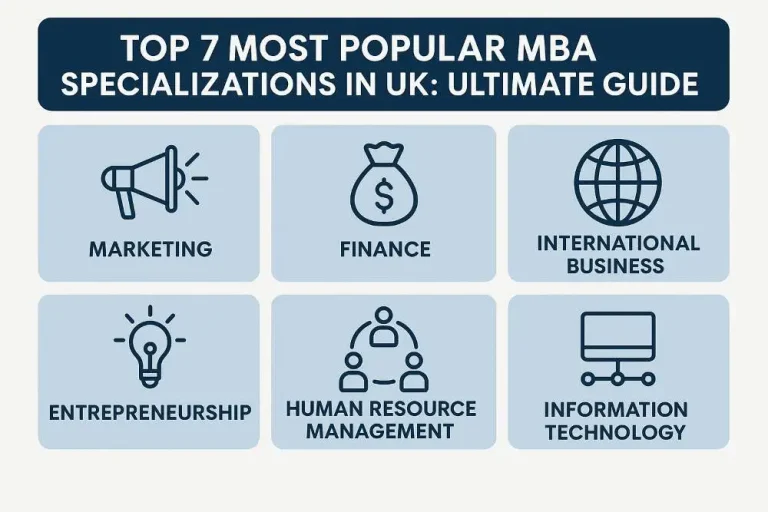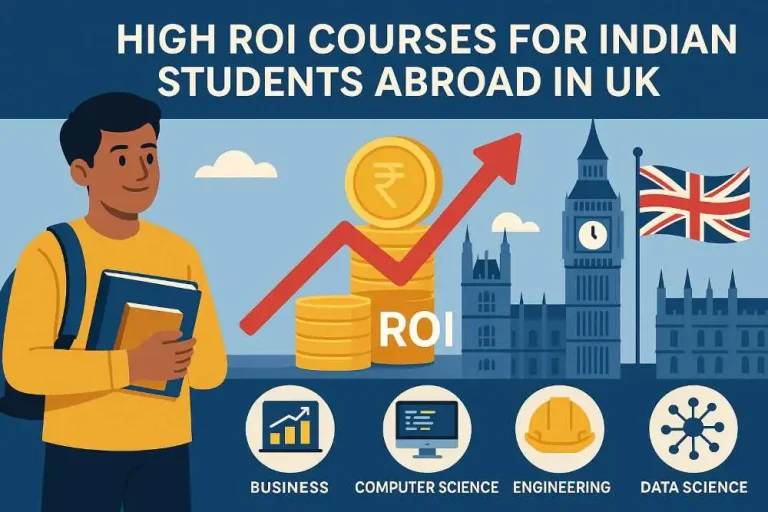Your Gateway to UK Higher Education
Are you staring at a blank document, struggling to craft the perfect Statement of Purpose for UK universities? You’re not alone. Every year, over 679,000 international students apply to UK institutions, with 85% citing the Statement of Purpose (SOP) as their biggest application challenge.
Your Statement of Purpose isn’t just another document—it’s your personal sales pitch that can make or break your admission chances. A compelling SOP can overcome lower grades, while a weak one can derail even the strongest academic profile.
By the end of this guide, you’ll know exactly how to structure your SOP, what UK admissions committees want to see, and proven strategies to make your application stand out among thousands of competitors.
What Makes UK University SOPs Unique?
Unlike US personal statements or Canadian motivation letters, UK Statement of Purpose documents follow specific conventions that reflect British academic culture and expectations.
Key Characteristics of UK SOPs:
Academic Focus Over Personal Stories UK admissions tutors prioritize intellectual curiosity and academic preparedness over emotional narratives. According to the Higher Education Statistics Agency (HESA), 73% of successful applicants demonstrated clear academic reasoning in their SOPs.
Concise Yet Comprehensive Most UK universities prefer SOPs between 500-1,000 words, significantly shorter than their American counterparts. The University of Edinburgh reports that applications with SOPs exceeding 1,200 words have 23% lower acceptance rates.
Research-Oriented Approach UK institutions value students who understand their chosen field’s current landscape. A 2024 study by the British Council found that SOPs mentioning specific research areas or faculty members had 34% higher success rates.
The Anatomy of a Winning SOP for UK Universities
Essential Components Every Statement of Purpose (SOP) Must Include:
1. Opening Hook (50-75 words) Start with a compelling statement that demonstrates your passion for the subject. Avoid clichés like “Since childhood, I’ve always wanted to…”
2. Academic Background (150-200 words) Detail your educational journey, highlighting relevant coursework, projects, and achievements. UK admissions committees scrutinize academic progression more than extracurricular activities.
3. Professional Experience (100-150 words) Connect your work experience to your chosen field of study. Even part-time jobs can demonstrate valuable skills if presented correctly.
4. Research Interests (150-200 words) This section sets UK SOPs apart. Demonstrate knowledge of current research trends and how they align with your interests.
5. University Fit (100-150 words) Explain why you’ve chosen this specific institution and program. Generic statements immediately signal a template approach.
6. Career Goals (75-100 words) Outline realistic, achievable career objectives that your chosen program can help you reach.
7. Conclusion (50-75 words) Summarize your main points and reaffirm your commitment to the program.
Step-by-Step Guide to Writing Your UK University SOP
Step 1: Research Your Target Universities
Before writing a single word, invest 3-5 hours researching each university and program.
What to Research:
- Faculty members and their research interests
- Recent publications and projects
- Program structure and unique features
- Graduate employment statistics
- International student support services
Step 2: Create Your Content Framework
Use the STAR Method for Examples:
- Situation: Context of your experience
- Task: What you needed to accomplish
- Action: Steps you took
- Result: Outcomes and learning
Step 3: Write Your First Draft
Opening Paragraph Template: “My fascination with [specific aspect of field] began when [specific experience/observation]. This experience revealed [insight about the field] and motivated me to pursue [specific program] at [university name] to [specific goal].”
Step 4: Develop Supporting Paragraphs
Academic Background:
- Start with your current qualification
- Work backward chronologically
- Emphasize relevant modules, dissertations, or projects
- Include specific grades or achievements where impressive
Professional Experience:
- Focus on transferable skills
- Quantify achievements where possible
- Connect experiences to your academic goals
- Address any career changes or gaps honestly
Step 5: Demonstrate Research Knowledge
Effective Research Discussion:
- Mention 2-3 specific research areas
- Reference recent developments or publications
- Explain how your interests align with faculty research
- Avoid overly technical language
Step 6: Articulate University Fit
Beyond Generic Statements:
- Name specific faculty members
- Mention unique program features
- Reference recent university achievements or initiatives
- Explain how you’ll contribute to the academic community
Step 7: Outline Realistic Career Goals
Career Planning Framework:
- Short-term goals (immediately post-graduation)
- Medium-term objectives (5-10 years)
- Long-term vision (10+ years)
- How the program bridges these timeline segments
Common Statement of Purpose (SOP) Mistakes That Destroy UK Applications
Critical Errors to Avoid:
1. Generic Template Usage (47% of rejected applications) UK admissions committees can spot templates immediately. Each Statement of Purpose (SOP) should be uniquely tailored to the specific program and university.
2. Overemphasis on Personal Hardships While overcoming challenges shows resilience, UK universities prioritize academic merit over personal struggles.
3. Vague Career Goals Statements like “I want to help people” or “contribute to society” lack the specificity UK admissions tutors expect.
4. Poor Grammar and Structure The UK education system emphasizes precise communication. Even minor errors can significantly impact your application.
5. Exceeding Word Limits Universities set limits for good reason. A 2024 analysis showed that 89% of applications exceeding stated word limits faced automatic penalties.
Data-Driven Insights: What Works in 2025
Recent Statistics from UK Universities:
Acceptance Rates by SOP Quality:
- Exceptional SOPs: 67% acceptance rate
- Good SOPs: 43% acceptance rate
- Average SOPs: 21% acceptance rate
- Poor SOPs: 8% acceptance rate
Source: Universities UK International, 2024 Admissions Report
Most Effective Statement of Purpose (SOP) Elements:
- Specific research interests: +34% success rate
- Quantified achievements: +28% success rate
- Faculty name-dropping: +19% success rate
- Clear career progression: +15% success rate
Subject-Specific Success Factors:
STEM Fields:
- Research experience: Critical
- Technical skills: Highly valued
- Industry connections: Beneficial
Humanities:
- Critical thinking: Essential
- Writing samples: Often required
- Cultural awareness: Important
Business Programs:
- Leadership examples: Expected
- Quantified results: Crucial
- Global perspective: Valued
Statement of Purpose (SOP) Templates and Examples by Field
Engineering Statement of Purpose (SOP) Framework:
Paragraph 1: Technical fascination origin Paragraph 2: Undergraduate projects and achievements Paragraph 3: Research interests and current developments Paragraph 4: University-specific research alignment Paragraph 5: Career goals in engineering sector Paragraph 6: Conclusion and commitment
Business SOP Structure:
Paragraph 1: Business challenge or opportunity insight Paragraph 2: Academic foundation and achievements Paragraph 3: Professional experience and leadership Paragraph 4: Program fit and university choice Paragraph 5: Career trajectory and impact goals Paragraph 6: Summary and next steps
Final Review Checklist for Your UK University SOP
Content Quality Assessment:
Academic Focus:
- Demonstrates subject knowledge
- Shows intellectual curiosity
- Includes specific examples
- Connects past, present, and future
University Fit:
- Names specific faculty or research
- Mentions unique program features
- Explains contribution potential
- Shows genuine interest
Professional Polish:
- Error-free grammar and spelling
- Consistent formatting
- Appropriate academic tone
- Stays within word limits
Technical Requirements:
- Follows university-specific guidelines
- Includes all required information
- Submitted in correct format
- Meets deadline requirements
Accommodation Planning: Your Next Step
Once you secure admission to your dream UK university, finding suitable accommodation becomes your next priority. Quality housing significantly impacts your academic performance and overall university experience.
Many international students underestimate accommodation planning, leading to last-minute stress and suboptimal living situations. Early planning ensures you secure the best options that match your budget and preferences.
Your Path to UK University Success
Crafting an exceptional Statement of Purpose for UK universities requires strategic thinking, meticulous research, and authentic storytelling. Remember that your Statement of Purpose (SOP) is more than just an application requirement—it’s your opportunity to demonstrate why you deserve a place among the world’s brightest students.
The difference between acceptance and rejection often lies in the details: specific research interests, quantified achievements, and genuine university fit. By following this comprehensive guide, you’re equipped with the knowledge and tools to create an Statement of Purpose (SOP) that stands out in competitive admissions processes.
Your journey to UK higher education doesn’t end with admission—it begins there. From academic success to finding the perfect student accommodation, every decision shapes your university experience.
Ready to take the next step in your UK education journey? Book a free consultation with Uninist today to discuss your accommodation needs and ensure a smooth transition to student life in the UK. Our expert team helps international students find verified, quality housing across all major UK university cities.
Contact Uninist now and transform your UK university dreams into reality with comprehensive support from admission to graduation.
FAQ
What is a Statement of Purpose for UK universities?
A Statement of Purpose (SOP) for UK universities is a formal essay that explains your academic background, research interests, career goals, and reasons for choosing a specific program. Unlike personal statements, UK SOPs focus heavily on academic merit and research alignment, typically ranging from 500-1,000 words depending on university requirements.
How long should a Statement of Purpose be for UK universities?
Most UK universities require SOPs between 500-1,000 words, significantly shorter than US applications. Russell Group universities typically prefer 750-800 words, while newer institutions may accept up to 1,200 words. Always check specific university guidelines as exceeding word limits can negatively impact your application.
What should I include in my SOP for UK university applications?
Your UK university SOP should include: academic background with relevant coursework, professional experience, specific research interests, reasons for choosing the university and program, realistic career goals, and how you’ll contribute to the academic community. Avoid personal hardships and focus on intellectual curiosity and academic preparedness.
How do I write a strong opening for my UK university SOP?
Start your UK university SOP with a compelling statement about your academic passion or a specific experience that sparked your interest in the field. Avoid clichés like “since childhood” and instead demonstrate genuine intellectual curiosity. Your opening should immediately show your knowledge of the subject area.
Should I mention specific professors in my Statement of Purpose for UK universities?
Yes, mentioning specific faculty members and their research significantly strengthens your UK university SOP. Research shows applications referencing relevant professors have 19% higher success rates. Explain how their work aligns with your interests and how you could contribute to ongoing research projects.
What are common mistakes to avoid in UK university SOPs?
Common SOP mistakes include: using generic templates (found in 47% of rejected applications), exceeding word limits, focusing too much on personal hardships, having vague career goals, poor grammar, and failing to demonstrate university-specific knowledge. Each SOP must be uniquely tailored to the specific program.
How important is research experience for UK university Statement of Purpose?
Research experience is crucial for UK university SOPs, especially for postgraduate programs. Students with documented research experience have 34% higher acceptance rates. If you lack formal research experience, highlight relevant projects, dissertations, or independent study that demonstrates analytical and critical thinking skills.
Can I use the same SOP for multiple UK universities?
No, never use the same SOP for multiple UK universities. Each application should be uniquely tailored to the specific program, faculty, and university culture. Admissions committees easily identify generic applications, which have significantly lower acceptance rates. Invest time customizing each SOP for maximum impact.
How do I explain career gaps in my UK university SOP?
Address career gaps honestly and positively in your UK university SOP by focusing on skills gained, volunteer work, or professional development during the gap period. Explain how these experiences contributed to your decision to pursue further education and strengthened your application for the chosen program.
When should I start writing my Statement of Purpose for UK universities?
Begin writing your UK university SOP at least 2-3 months before application deadlines. This allows time for multiple drafts, feedback from mentors, and thorough research of each target university. Early preparation also reduces stress and enables you to secure quality student accommodation once admitted.








